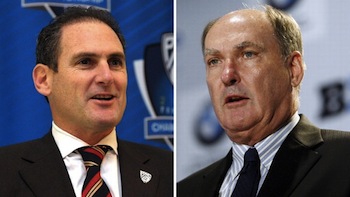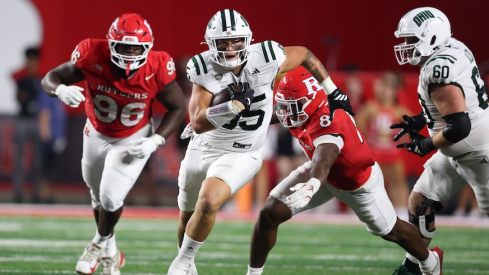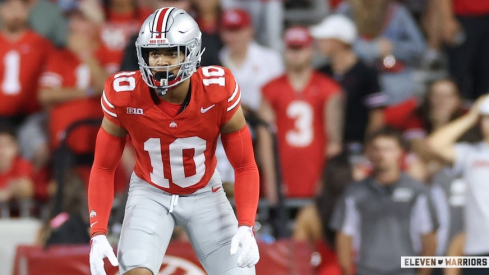 Alliance politics is tricky business
Alliance politics is tricky businessLast week the Big Ten and the Pac-12 dissolved their scheduling pact, citing the number of conference games as the primary issue.
The news release explained:
A great effort was made by both conference staffs to create football schedules that would address the variety of complexities, but in the end, we were just not able to do so. While everyone at the Big Ten is disappointed by the news, we look forward to continuing the historic partnership that we have with the Pac-12 and to working together on other matters in the future.
I'm sure there were scheduling difficulties, but there's no doubt in mind that if both parties really wanted this to happen, then it would have.
Why this matters: Alliance Politics
The Big Ten and the Pac-12 have been historically tied together through the Rose Bowl and from the outside at least, it looked like this deal would really benefit both parties.
It's a real shame because it was good for the fans and good for making championship-caliber teams. It was also important for the Big Ten in long-term competitiveness.
As Ramzy wrote at the time:
While the Big XII, Big East, ACC and SEC have meetings on top of meetings on top of meetings to determine their positions, strategize, sometime synergize and - in one case - continually measure its overinflated and oversigned football phallus - Delany expanded his conference’s reach into every single time zone with a phone call and almost no investment
and
Every move those four other conferences have made since that quiet announcement in December has been a futile attempt at catching up with what B1G and PAC pulled pulled off without even having to declare projected revenues.
Ramzy captured exactly how important this was for the Big Ten: not only would it produce great football for fans, competitive games to forge championship teams, but it also made money. Lots of it.
Sure, a nine-game Big Ten schedule is better for perception and strength of schedule than another MAC team, but a Pac-12 game against Oregon, USC or Stanford would be even better.
But there's definitely a Delany vs. Slive competition element here too, and you have to imagine Slive smiling right now.
The Big Ten knows that the most powerful conference in terms of quality is undoubtedly the SEC, but Delany has been playing a shrewd game, making money while the conference grows and makes a bid with power parity.
A long term alliance with the Pac-12 is classic balancing behavior against the giant SEC - the two might tie their futures together in this game of conference politics.
Why it fell apart: commitment problems
 What could have been
What could have been Unfortunately, it was not to be.
While scheduling difficulties played some role, a long term alliance commitment was probably the greater hurdle.
James Fearon discusses these commitment problems:
"Second, rationally led states may be unable to arrange a settlement that both would prefer to war due to commitment problems, situations in which mutually preferable bargains are unattainable because one or more states would have an incentive to renege on the terms"
Essentially, the Big Ten and Pac-12 likely had mutual fears of the other side reneging from the agreement. The future balance of power between the conferences is largely unknown.
While the SEC looks like the biggest kid on the playground now, who knows about 2015 or 2020? The Pac-12 is certainly gettg stronger, with USC, Oregon, and Stanford all looking like playoff contenders annually. What incentive do they have for scheduling a strong B1G team?
Further, why would lesser teams in either conference want to get matched up and committed to a team of unknown strength - especially when athletic directors can schedule individual home and home games themselves? It becomes a sovereignty issue within the conference.
There are then two levels of commitment problems - that between the conferences and that between the member schools d the conference.
What the b1g should do
The competition between the conferences (and between Delany and Slive) remains. With the linked goals of becoming increasingly competitive for national titles as well as simply making money, the Big Ten can do several things:
It would be smart to still maintain SOME relationship with PAC12 at this point, even if the two are not as intimately connected as previously hoped. High quality out of conference matchups (and wins, more specifically) are good for percetion of the conference and for TV money.
On that note, and as Jason mentioned on Twitter, “@11W: Umm, Georgia. It's us, Ohio State. We should talk about getting together again.”
Mark Richt (who I really like) is used to playing (and getting beaten by) Urban - the game commentators would have a field day with this matchup.
And as Tom Orr wrote, "It is entirely reasonable to ask OSU to play 2 good (home-and-home) opponents OOC each year. Stagger home/road games so you have every year.Hopefully the new playoff system/selection committee encourages that kind of scheduling for everyone."
If you don't do it for the fans, do it for the playoff. At the conference level or the school level, just schedule high quality out of conference matchups.

